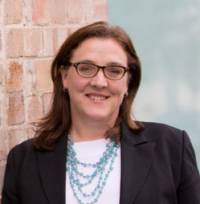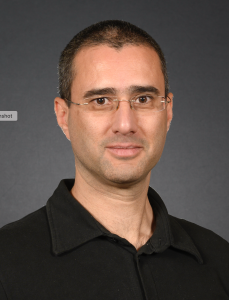What is the Australian PV Institute?
The Australian PV Institute is a not-for-profit, member-based research organisation providing data analysis, reliable and objective information, and collaborative research to support the development and uptake of solar photovoltaics and related technologies.
APVI members are organisations and individuals from industry and academia with an interest in solar energy research, technology, manufacturing, systems, policies, programs and projects.
The APVI has a zero-tolerance approach to Modern Slavery. You can read our Statement on Modern Slavery here.
Participation in APVI activities is on the basis of subscriptions or sponsorship of research and events. Benefits include regular events and newsletters, access to data, networking and opportunities to work with local and international PV experts on submissions, reports and research projects.
The APVI organises the Asia-Pacific Solar Research Conference (APSRC), a regional forum for communicating outcomes covering all aspects of solar-related research.
In conjunction with academia, governments and industry, APVI develops high quality solar analysis tools. In addition to Australian activities, we provide the structure through which Australia participates in two International Energy Agency (IEA) programs.
Our work is intended to be apolitical and of use not only to our members but also to the general community. We focus on data analysis, independent and balanced information, and collaborative research, both nationally and internationally. As well as solar PV and solar heating and cooling, APVI is interested in a range of related technologies (including batteries and other storage, electric vehicles, heat pumps, demand management, monitoring and control, etc.), with specific reference to how they enable and support the deployment and integration of solar technologies.
APVI acknowledges that we live and work on unceded lands of Aboriginal and Torres Strait Islander cultures. We pay our respect to Traditional Owners of Country throughout Australia and recognise their continuing connection to lands, waters and communities. The APVI supports the Uluru Statement from the Heart, an invitation from Aboriginal and Torres Strait Islander to the broader Australian population to create a better future, through Voice, Treaty and Truth.
For how to join the APVI, and the costs of joining, go here.
APVI is a not for profit company, limited by guarantee.
Board members
- Rebecca Yang, University of Melbourne
- Roger Dargaville, Monash
- Rong Deng, UNSW
- Marnie Shaw, ANU
- Ziv Hameiri, UNSW
Office Bearers
- Chair: Rebecca Yang, University of Melbourne
- Secretary: Muriel Watt, ITP Renewables
- Treasurer: Robert Passey, UNSW / ITP Renewables
- Public Officer: Igor Skryabin, ANU
Board Members
Rebecca Yang

Rebecca Yang is a leading scholar in renewable energy, and construction engineering, and is a Professor in the Department of Infrastructure Engineering at the University of Melbourne. Her research program focuses on accelerating renewable energy transitions across buildings, industries, communities, and cities. Her work integrates technical, economic, and policy insights to support the deployment of innovative clean energy technologies and more sustainable urban systems. Rebecca is a Board Member of the Australian Photovoltaics Institute (APVI). She initiates the Solar + Network (SPN), an APVI initiative strengthening Australia’s emerging market for innovative solar technologies and system-solutions integration. Internationally, she represents Australia to play a leadership role within the International Energy Agency Photovoltaic Power Systems Programme (IEA PVPS)—one of the world’s most influential collaborative research networks on solar energy. Nominated by Standards Australia, Rebecca also serves on the Australian National Mirror Committee for the IEC TC 82 on solar photovoltaic systems. Linkedin
Roger Dargaville

Roger is the Deputy Director of the Monash Energy Institute and Senior Lecturer in Renewable Energy in the Department of Civil Engineering at Monash. His research focus is on the optimal combinations of different renewable and conventional energy generation and storage technologies to meet the transformation to a low carbon energy system on a continental scale. He was the founding deputy director of the Melbourne Energy Institute, recently became the Director of Sustainability at Monash, and is the Vice-President of the Australian Meteorological and Oceanographic Society. Roger also had the pleasure to convene the first hybrid APSRC in 2020. LinkedIn
Rong Deng

Dr Rong Deng completed her Bachelor and PhD in Photovoltaic Engineering at the University of New South Wales. She is an ACAP postdoctoral research fellow, currently leading all PV end-of-life and recycling research activities within ACAP.
Rong is also the Australian Representative on IEA PVPS Task 12 and lectures in Life Cycle Assessment at UNSW. Recently, she has been listed on Forbes 30 under 30 Asia Class of 2022 in the Science and Healthcare category. LinkedIn
Marnie Shaw

Marnie Shaw is a Research Leader in the Battery Storage and Grid Integration Program and Associate Professor in Engineering at the Australian National University. She was previously convenor of the Energy Efficiency research cluster at the ANU’s Energy Change Institute. Dr Shaw’s research interests lie in applying data analytics and machine learning to a range of data-rich problems, including the integration of energy storage to support an electricity grid powered by renewables. LinkedIn
Office Bearers
Renate Egan

Co Founder and Chair, Solar Analytics and Professor at UNSW, School of PV and Renewable Energy Engineering.
Renate is the Australian Representative on the Executive Committee (ExCo) for the PV Power Systems program. The ExCo meets bi-annually with the Operating Agents for each IEA Task. As Australian ExCo, Renate co-ordinates all of Australia’s participation in the IEA PVPS program.
She has 25 years industry experience in module manufacturing, technology development and innovation, and was Chair of the APVI from 2014 to 2019. Linkedin
Rob Passey

Rob has 24 years’ experience working in the energy sector. He is a Senior Research Fellow in the School of Photovoltaic and Renewable Energy Engineering at the University of New South Wales. He is also a Senior Manager at ITP Renewables and Treasurer at ther Australian PV Institute. Rob’s policy research and analysis focus includes renewable energy, distributed generation, energy efficiency and emissions trading. He is especially interested in developing market mechanisms to reduce greenhouse emissions, increase uptake of low emission technologies and drive energy efficiency. In addition, Rob is researching areas such as smart grids, electric vehicles, and technical assessments of low emissions technologies.
Rob has a Bachelor of Science (First Class Honours and University Medal) from the University of New South Wales, Bachelor of Applied Science and Master of Science from Murdoch University and PhD from the University of New South Wales. Linkedin
Igor Skryabin

Igor Skryabin is Research and Business Development Manager and convener of the Hydrogen Economy research cluster of ANU Institute for Climate, Energy & Disaster Solutions (ICEDS).
Dr Skryabin’s career has spanned both industry and academia. His major research contribution was in the field of electrochemical PV and electrochromic devices: as a Technology Executive, Dr Skryabin led the technology development programme at Dyesol’s Ltd. He is a director of several technology start-ups. Igor’s authored 35+ patents and industrial designs, 100+ research papers. In their 2010 review of Australian solar patents, Griffith Hack identified Dr Skryabin as the second-most cited Australian solar inventor. He holds MSc in physics, PhD in technical sciences from the Moscow University of Ecological Engineering, MBA from the UC and MIP from UTS. Dr Skryabin represents ANU in the NERA Hydrogen Technology Cluster. Linkedin


